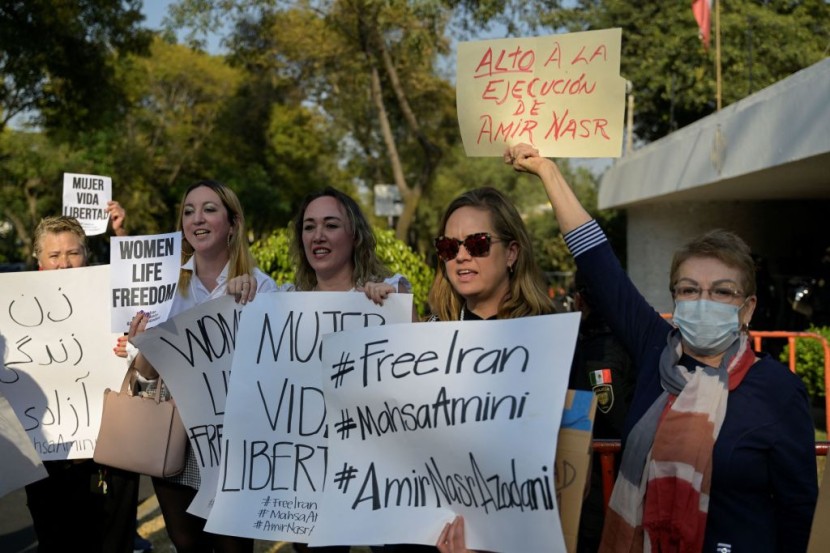
- Iran executions surged in 2022 in an alleged attempt to "spread fear" among protesters
- The number of people given capital punishment rose by 75% in 2022
- In that year, there were at least 582 people who were put to death
Several rights groups claim that Iran executions surged in 2022 by roughly 75% in an effort by authorities to "spread fear" among protesters in a plan to curb dissent.
There were at least 582 people who were put to death in that year which is the highest number since 2015, based on data collected by Norway-based Iran Human Rights (IHR) with the help of France's Together Against the Death Penalty (ECPM).
Iran's Executions Surge
The two rights groups' report was a collection of official announcements and information from sources inside Iran. The majority of the people who were sentenced to death were those who were convicted of murder or drug charges. However, two protesters were also hanged in December.
The 22-year-old Mohsen Shekari and 23-year-old Majidreza Rahnavard were found guilty of the vague national security charge known as "enmity against God." The decision followed what the report said were "show trials" focused on confessions obtained from the defendants through torture, as per BBC.
Two other protesters were executed at the beginning of this year, and several dozens were reportedly sentenced to death or charged with capital offenses. Demonstrations in Iran swept across the region following the death in custody of a 22-year-old Kurdish woman called Mahsa Amini.
Amini was reportedly detained by morality police in Tehran in September last year for allegedly wearing her hijab "improperly." The rights groups said that only 71 of the executions recorded last year were announced by official sources.
They argued that the rest were "unannounced" or kept secret only to be revealed by sources that included eyewitnesses, family members, lawyers, and people who worked for prisons or the judiciary.
Read Also: Russia Conducts Drills in Sea of Japan
Spreading Fear Among Protesters
In a statement, IHR director Mahmood Amiry Moghaddam argued that as the international community was to keep the protest-related executions in check, Iranian officials were moving forward with the sentences for other charges "to compensate, and to spread fear among people," according to CBS News.
Moghaddam noted that they had concerns that the number of executions in Iran could significantly increase this year if the international community continues at its current pace. He argued that exert execution in Iran was political regardless of what charges the individual was facing.
He described the individuals who were executed on drug or murder charges as being the "low-cost victims" of the country's "killing machine." Moghaddam added that there were more than 150 executions in the first three months of 2023 alone and is on track to have the highest number in the last two decades.
The rights groups also highlighted the apparent lack of transparency authorities show in announcing the executions. Their report showed that more than 88% of all executions that officials ordered, as well as 99% of drug-related executions, were not officially announced, said DW News.
Related Article: US-Mexico Border Fire Update








